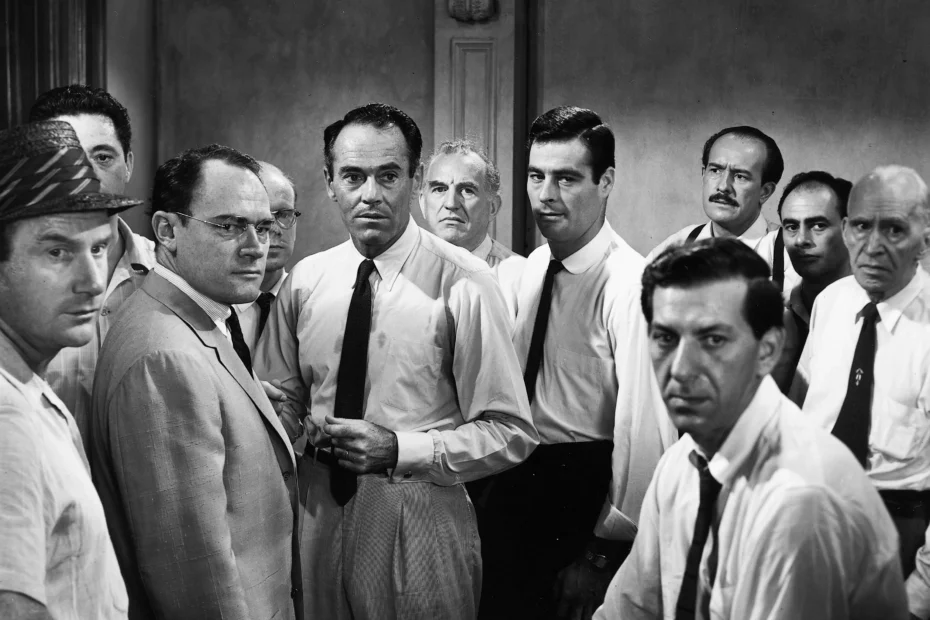12 Angry Men is a 1957 American drama film directed by Sidney Lumet, adapted from a 1954 teleplay of the same name by Reginald Rose. The film is set in a New York City courtroom, where a jury is deliberating the guilt or innocence of a teenage boy accused of murdering his father. It was nominated for three Academy Awards (Oscars) in 1958: best picture, best director, and best adapted screenplay. It is widely regarded as one of the greatest films of all time, with powerful performances, sharp dialogue, and thought-provoking themes.
The film portrays the flaws in the justice system and the human tendency to jump to conclusions based on preconceived notions. It also highlights the importance of critical thinking and the ability to see beyond one’s own biases.
According to American law, a jury must reach a unanimous decision in order to convict the defendant in a federal criminal trial. Here the jury of 12 men is given the daunting task of determining whether the boy is guilty of the murder charge beyond any reasonable doubt, for which the penalty is death. At the initial vote, only one juror (played by Henry Fonda) has a doubt, while others are certain of the boy’s guilt. It is fascinating how he guides the group to re-examine the evidence beyond everyone’s prejudice amid chaos.
The film’s dialogue is sharp and thought-provoking, and the tension in the jury room builds throughout the film, keeping the audience on the edge of their seats. The use of tight close-ups and the jury room as a claustrophobic setting adds to the film’s tension and helps to convey the jurors’ sense of isolation and confinement. Despite being nearly seven decades old, it still stands as a must-see for anyone interested in the criminal justice system.
